Bonus Issue — WSL Relegation Scrapping Controversy

Spurs Women have hardly had any games over the last month, but fans still had plenty to discuss in the downtime.
Although there had been rumors to the same effect previously, finally there were solid news reports of an upcoming proposal to temporarily scrap relegation in the top two flights of English women's football in order to expand the leagues.
The newly formed Women's Professional Leagues Limited (WPLL) company that now runs the Women's Super League and Women's Championship hadn't made many waves yet in their first year in charge—outside of a much-derided interview with CEO Nikki Doucet suggesting that WSL games should invoke a "Glastonbury" atmosphere. But now the WPLL stands poised to remove a fundamental aspect of English football competition, allegedly with the intention of increasing club investment alongside boosting the numbers of teams in the top two divisions. The eventual aim is to have a 16-team slate for both divisions.
I've already aired my views on this controversy in many places, including this newsletter and the latest N17 Women podcast episode. So for this bonus issue, I will instead round up a variety of perspectives from across the world of women's football.
GirlsontheBall defends the concept of relegation
This outlet (run by Rachel O'Sullivan and Sophie Downey) is one of the best for thorough and objective reporting on the women's game, so I was glad to see them put out a post on the relegation controversy. They come with receipts to show examples of how thrilling relegation can be—up and down the women's pyramid.
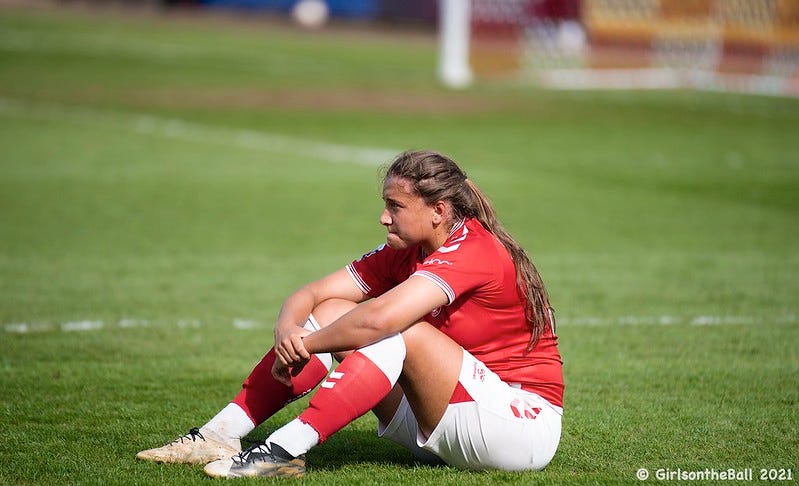
...Relegation matters. It matters deeply and, if promoted properly, it sells—both in terms of fans and on TV. The jeopardy is what gets audiences interested, the stakes are high and with that so are the incentives and drama.
They also touch on one of the main sticking points I have around the proposal, which is that leagues that already operate with a closed model (like the NWSL here in the States) have many different mechanisms for maintaining competition and parity—none of which the WPLL seems eager to implement.
You can follow GirlsontheBall on Bluesky for further updates and regular matchday coverage.
Kelly Simmons warns against encouraging mediocrity
In an opinion piece in The Guardian, Kelly Simmons (former director of the women's professional game at the FA) highlights the possibility of increased "dead rubber" fixtures and stagnation at the club level.
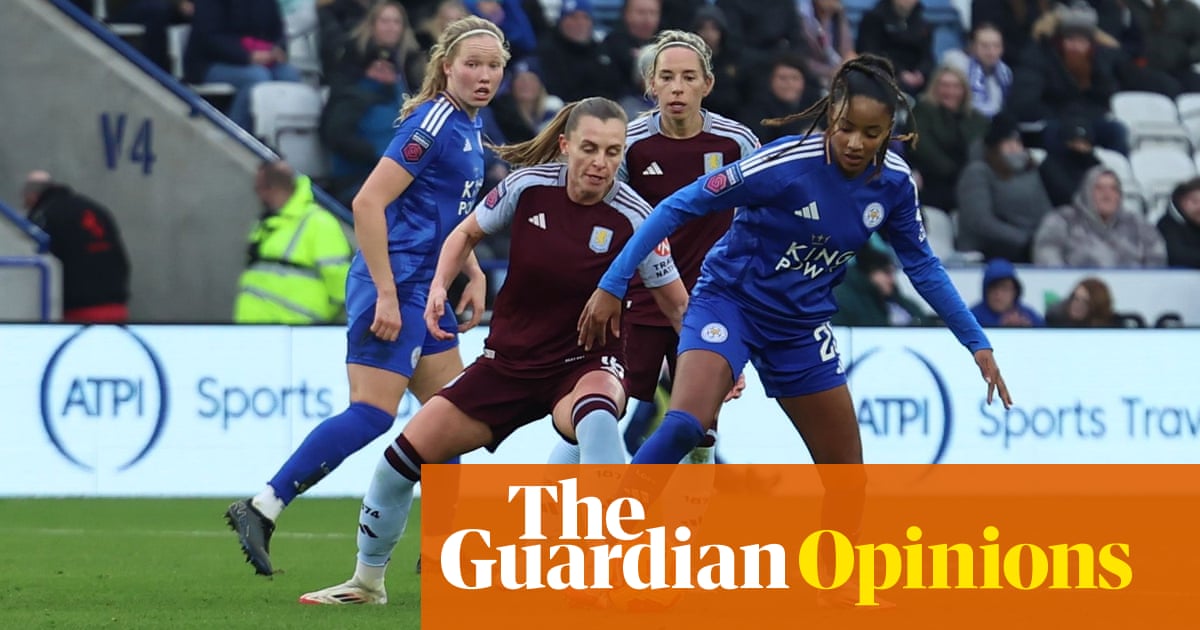
Even fervent opponents of the relegation proposal agree that the leagues need to be expanded, and Simmons makes a succinct case for why:
The top two tiers have been at 12 teams for a number of years to concentrate talent and ensure the product is of the highest quality. As attendances grow and match-day revenues become an increasingly important part of the overall business plan, clubs and fans need more guaranteed home games.
I don't share her concern about there not being an adequate player pool for expansion since the player development structures have also been improving in recent years—although Simmons rightfully points out that academies are still underfunded. That being said, if certain clubs—Spurs included—continue to limit their recruitment to only a few countries, they will definitely struggle to keep up.
I agree that removing relegation and inevitably producing a lot of fixtures that simply don't matter is a losing strategy at a time when attendance figures are already falling off from the post-Euros high.
We know from research that games with nothing resting on it produce the lowest attendances and audiences.
Any growth of the leagues needs to be a situation of a rising tide lifting all boats, not merely a consolidation of clout for the current top performers.
Ian Wright draws parallels with the failed European Super League plan in men's football
I'll start off by saying that it frustrates me that Ian Wright is still one of the few notable figures from men's football who takes an active interest in women's football and advocates for its growth. But kudos to him for doing so despite the deafening silence of his peers.
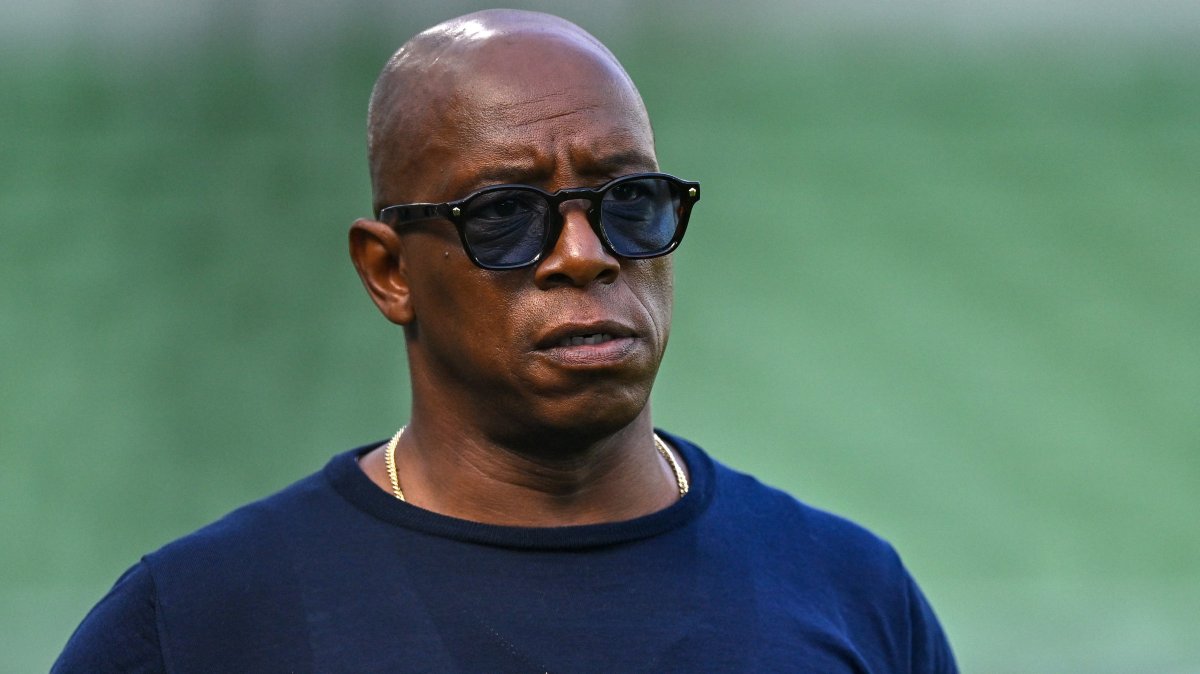
Wright points out that all six Premier League clubs who attempted to join the European Super League in 2021 also have a team in the Women's Super League and would be involved in the eventual vote for the expansion proposal.
We’re dealing with the same owners who were very much up for the Super League. If we’re dealing with those owners you have to be worried about the game, because I believe if you could give some of these owners a way out they’d take it. If it was no relegation and everything’s safe they’ll do that.
He also notes that much like with the ESL plan, there hasn't been sufficient consultation with fan groups and that has made many stakeholders distrustful of the WPLL's intentions.
For them to do that, and without consultation to the Football Supporters’ Association, they’re not involved. Those are the kind of people who should be at every single table at every level of the women’s game. What is their plan here? It says to me that if relegation goes, it doesn’t come back.
As I've mentioned on the N17 Women podcast, it's all well and good for the WPLL to come in with a "disruption" mindset, but they have to accept that many fans will doubt their respect for the traditions of the English women's game. Wright also touches on this concern, noting that it seems like the WPLL is merely "copy[ing] the American model." What works for one league will not automatically translate to another league with different precedents, regulations, and governance.
The Cutback recaps the response from Nikki Doucet
This article from The Cutback includes the WPLL CEO's response to the negative fan reaction around the proposal and also provides some more detail on the process for the eventual vote.
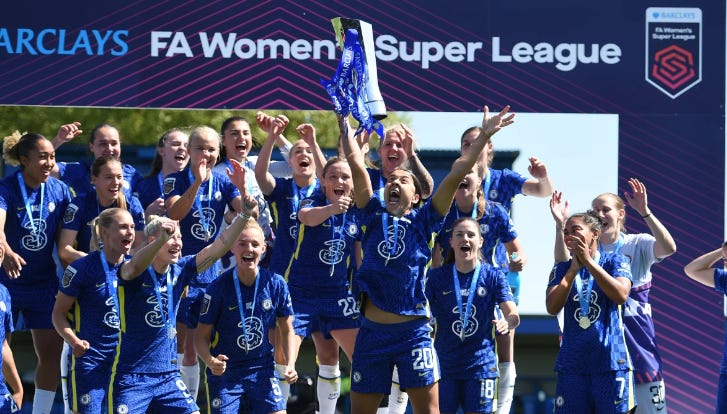
For example, the FA has veto rights on any proposal and would need to approve or disapprove the measure (if it passes the club vote) by August 1 for a 2026/27 season rollout. But the FA's chief executive, Mark Bullingham has already indicated that the FA will "vote against any proposal that would make the WSL a 'closed league'." Bullingham elaborated:
I think that over the last few years we've been asked a few times about whether we would accept a closed league and our response has always been no. The reason for that is not just a moral one, from a sporting point of view, but we actually don't think in the long-term it's smart commercially because you end up with a lot of dead rubbers.
However, we think that some of the ideas that have been put forward are worth considering, on the proviso that there's still promotion into the league. I think there's a difference between not having relegation and allowing the league to grow through promotion with no relegation versus having a closed league.
I think the concern here should be that the FA would allow a partially closed league, so to speak, and then the cat is out of the bag. Many fan groups, pundits, and other stakeholders have expressed fears that once relegation is removed, the WPLL (and many of the clubs we love and support) will be hesitant to reinstate it—in other words, club owners will be enjoying some newfound complacency and won't want to return to the days of staving off relegation—which obviously requires continual investment into playing squads. I have yet to see a convincing argument for how removing relegation will encourage investment, despite that being one of the WPLL's main talking points around the proposal. Common sense suggests otherwise.
Spurs fan and FSA chair Chris Paouros brought up a good point when confirming that the FSA and other fan groups have yet to be consulted:
Any ideas must have the good of the wider game at their heart, and a central part of that is the ability for clubs to rise up through the pyramid on the back of on-field success. Supporters want to see sporting integrity and competitive leagues, our match-going members have a lot to say on these matters, and serious consultation is vital.
In responding to criticisms of the proposal, Doucet acknowledged, "We deeply understand the impact of decisions and that the impact of everything done at the top cascades down the pyramid." But recognizing the danger and making adjustments to prevent harm to the lower divisions are very different things, and we've seen little evidence that the WPLL will prioritize growth for leagues and teams farther down the pyramid; currently, the impression is that the shop could remain closed after the initial growth and the teams that squeak in will have done so at the expense of a healthy women's football ecosystem.
Expected Goals digs into the governance
I also recommend listening to the last couple of episodes from the Expected Goals podcast, hosted by Maggie Murphy and Matt Cutler. They've been across the topic in a very detailed and thoughtful way, drawing on Murphy's previous experience as CEO of Lewes FC and board member of the WSL & Championship.
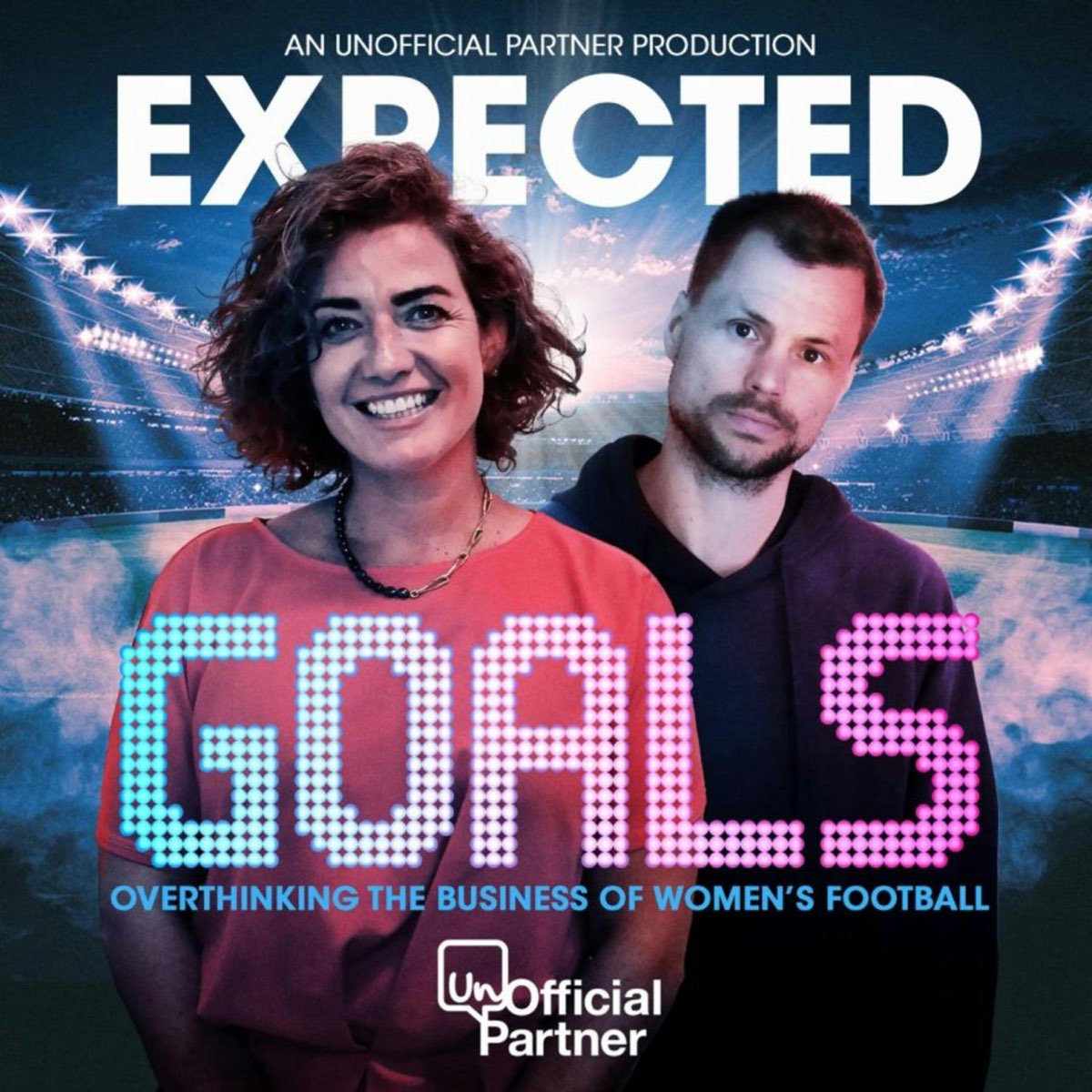
In the most recent episode, they answered some listener questions about the WPLL proposal, including some alarming information on who actually votes on behalf of the clubs.
To echo Ian Wright, we need to remember the lessons of the European Super League fight on the men's side of the sport and remain vigilant to attempts to make the women's game less competitive and less fair. One way we can kickstart the protest is to sign this petition started by a group of "Concerned WSL Fans" (indeed!):
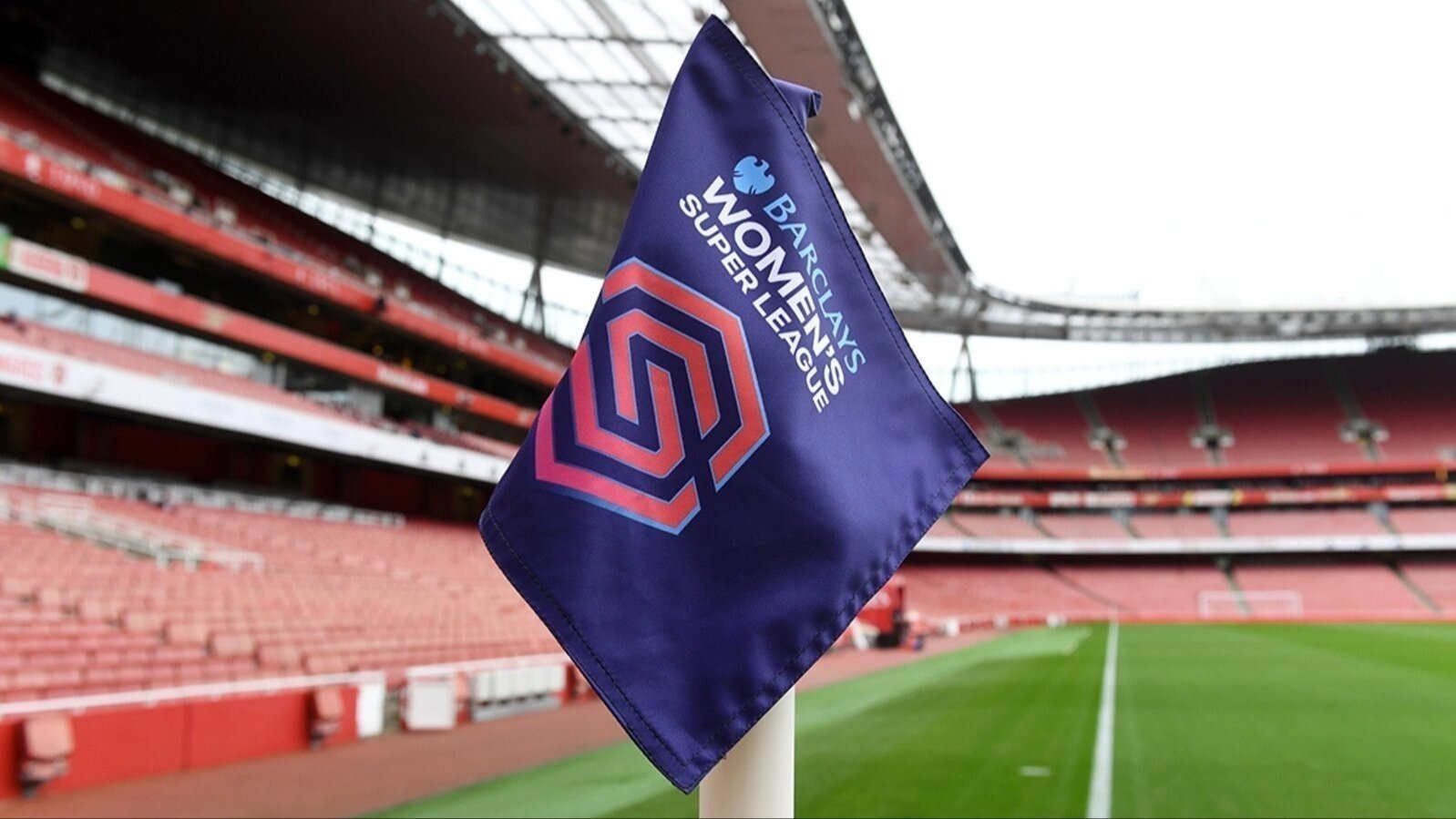
We can also continue to call for more transparency in the governance of the WSL & Championship under the new WPLL. It's alarming that they seem to already be so far down the road of bringing this proposal to a vote, yet still claim it's "not ready." I worry that by the time key stakeholders are finally consulted on the final proposal language, it will be too late to actually influence the club vote in a meaningful way. That is where you would hope the FA would step in to protect the integrity of the game, but are already showing a willingness to consider the proposal with a few conditions.
And of course, fans and players are being left behind in all of these discussions while the club executives and WPLL strategize. What sort of game will fans be returning to in the 2026/27 season if the proposal goes through—how many games will actually matter? And how are the players meant to feel about completely changing their outlook on what it means to compete in English women's football? It's long past time to beef up the players' union (the PFA, which at this time only covers the top two tiers in the women's game).
I feel a deep disappointment that the WPLL is prioritizing this proposal at the expense of considering other possible changes that could have a tangible impact on improving the "product on the pitch" of women's football in England. There are plenty of examples that fans, players, and managers have all been vocal in requesting, such as goal-line technology, VAR or VAR lite, fully professionalizing the ranks of match officials, and even considering updates to the competition structures of the domestic cups to provide more meaningful games for teams below the traditional top 4.
Suzanne Wrack noted that many of these improvements were recommended in Karen Carney's government-commissioned review of the women's game. I also agree with Wrack that there aren't enough leaders at the governance level of English women's football with hands-on experience in the sport, and enthusiasm is not enough to make up for a lack of insight—which is why the WPLL needs to be leaning heavily on consultation with stakeholders. I'll quote another pertinent bit from her article in The Guardian below.

Four years is a long time. A long time for owners to get comfortable, complacent and used to the idea of a closed league where their investment is protected... Those in favour [of the proposal] are often those responsible for the most underfunded women’s teams. This is not a coincidence.
There are several WSL clubs who have the capability and resources to challenge the top 4 status quo but are seemingly content to linger in the middle of the table instead. Removing relegation would be tantamount to giving those clubs tacit permission to continue underperforming. If the WPLL truly wants to see the WSL reach its full potential, they cannot go through with a proposal that would surely enable this lack of ambition.
COYS

Thank you for reading this bonus issue of Spurs Across the Pond!
If you’re enjoying the newsletter, make sure to sign up for a free subscription to receive new issues in your inbox. You can also buy me a Ko-fi to support my writing with a one-time tip. Your support keeps Spurs Across the Pond running and is much appreciated!
You can also find me on Bluesky and podcasting at N17 Women and The Tottenham Depot.








Member discussion